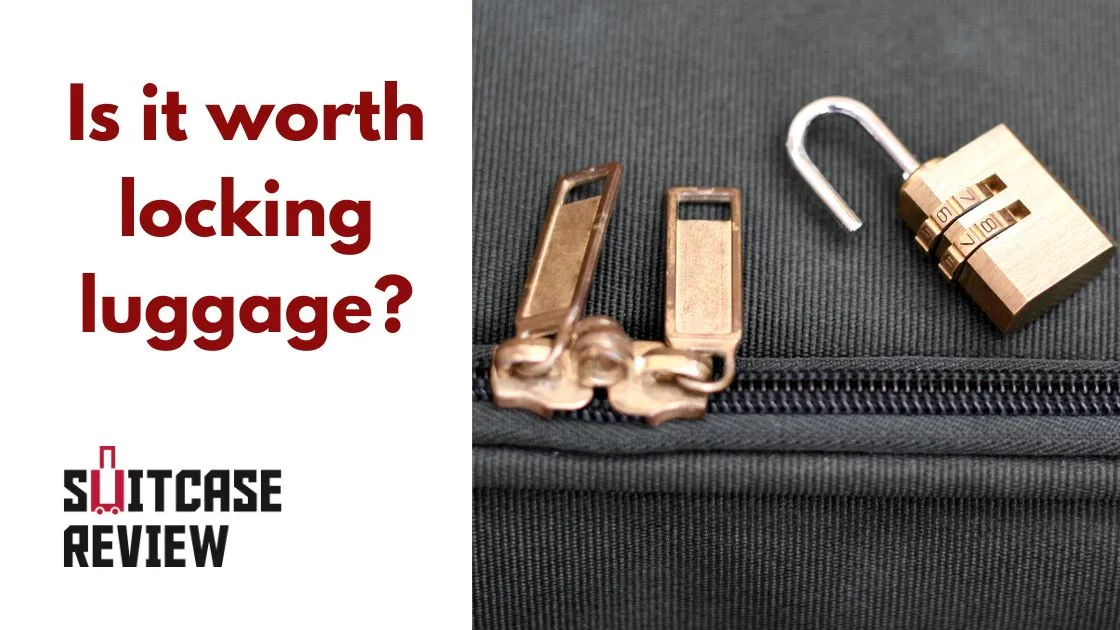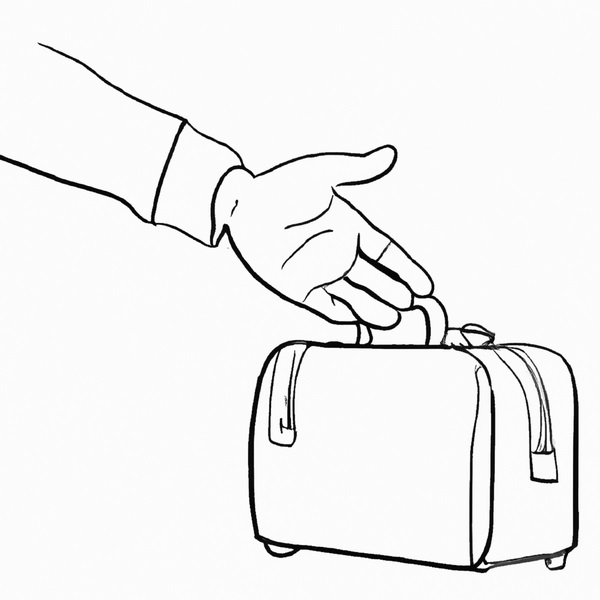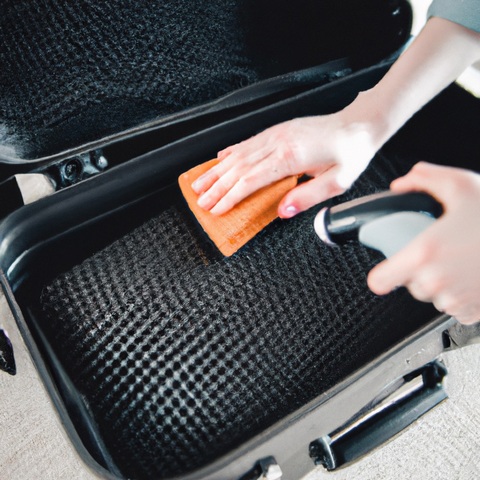Table of Contents
Is it necessary to lock checked luggage?
It totally depends on the value of the items you are packing in your checked-in luggage.
If you are not packing any valuable items in your checked-in luggage, then there is not much to worry about.
All the checked-in luggage goes through a security screening.
And if the authority physically opens luggage in the security screening, they leave a message in the luggage.
So for bags and luggage with fewer value items, such as used clothes and toiletries, it is totally fine to let them pass without any lock.
The Benefits of Luggage Locks
Locking your luggage makes it difficult for baggage handlers or security officers to open the luggage and do any damage or steal.
Besides, a lock ensures your luggage zippers are in a place and not unwantedly opening in luggage handling and conveyor belt.
Luggage locks keep valuable items intact and secured by keeping the zippers closed.
The Limitations of Luggage Locks
Although locking your luggage may provide you with better security, it never guarantees that your pieces of stuff will not be stolen.
You cannot use any lock that is not approved by TSA, and TSA only approves those locks that they can open by themselves for security inspection.
And it makes the luggage vulnerable to theft by TSA employees.
And this is why you should carry your valuable items in your carry-on bag instead of checked-in luggage.
The Different Types of Luggage Locks
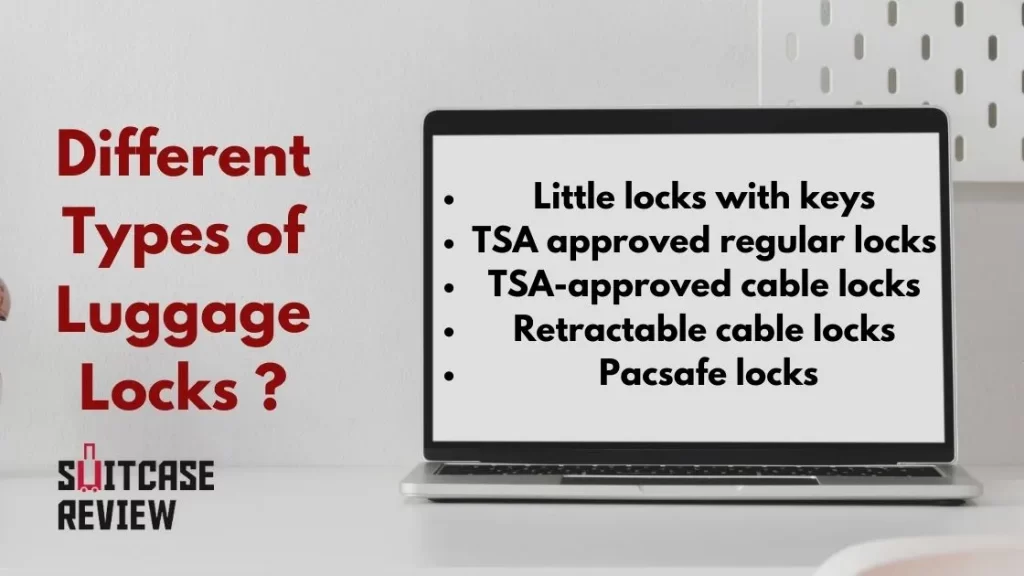
There are many types of locks available for use in luggage which is also approved by TSA; it includes the following.
- Little locks with keys
- TSA approved regular locks
- TSA-approved cable locks
- Retractable cable locks
- Pacsafe locks
TSA-Approved Locks
There are many locks available that are approved by TSA.
You can get a lot of TSA-approved combination locks, such as Anvil TSA-approved luggage locks, Master Lock 4688D luggage locks, Lumintrail TSA-approved all metal combination locks, and many more.
These locks are TSA approved because TSA has master keys that allow TSA employees to open the lock if they want.
And it is better to use a TSA-approved bag when you are traveling by air.
Because a non-TSA approved lock will force the TSA employees to cut off your luggage to check what is inside.
Alternatives to Luggage Locks
There are multiple alternatives available that can do the job of luggage locks, and these alternatives even do better in providing security to your luggage.
Such alternatives are Zip ties, Luggage wrappers, and Luggage straps.
Zip ties are a cheap and effective way of ensuring luggage safety.
Even if the TSA authority cuts off your zip ties for inspection purposes, it will not bother you because of the low cost of zip ties.
Another alternative is a luggage wrapper.
Luggage wrappers are effective for preventing luggage from being damaged and keeping the items safe inside the luggage.
Although it is quite expensive, as a single luggage wrap can cost you around 20 to 50 dollars, but wrapping will ensure both your luggage and the items in it is safe from any damage and stealing.
And another alternative to luggage lock is luggage straps.
Luggage straps are often used to keep the luggage tightly packed and prevent luggage zippers from breaking.
Is it worth locking luggage?Do I Need a Luggage Lock?
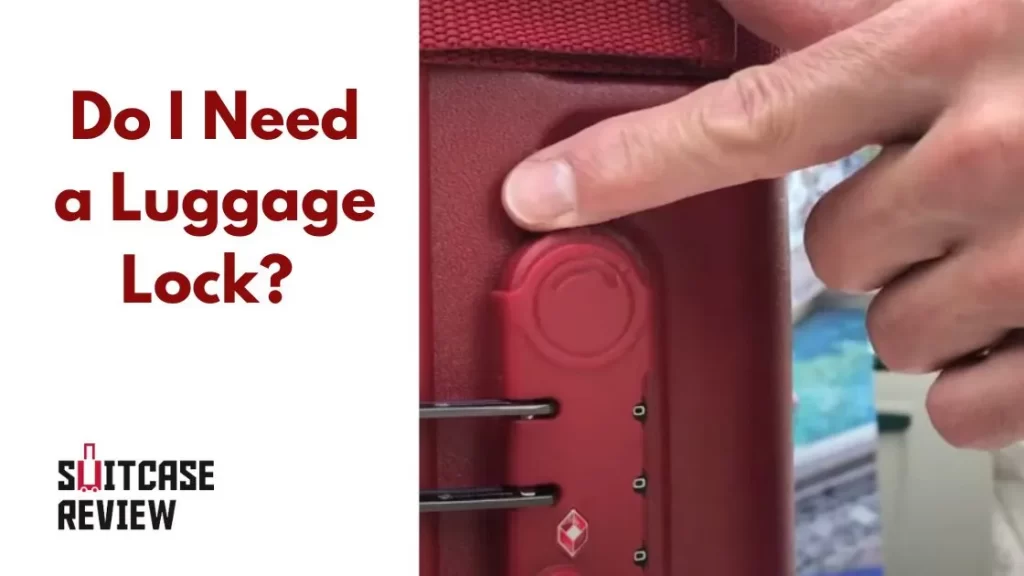
You do need a luggage lock to prevent any theft.
While traveling, you can take your luggage as a carry-on or as checked-in luggage. In case of taking your luggage as a carry on, you do not need to use any lock.
But in case of taking your luggage as checked-in luggage, you should use a lock to prevent any unwanted opening of your luggage.
Especially in case your luggage has any expensive and valuable items in it.
Is it worth locking luggage? Do luggage locks prevent theft?
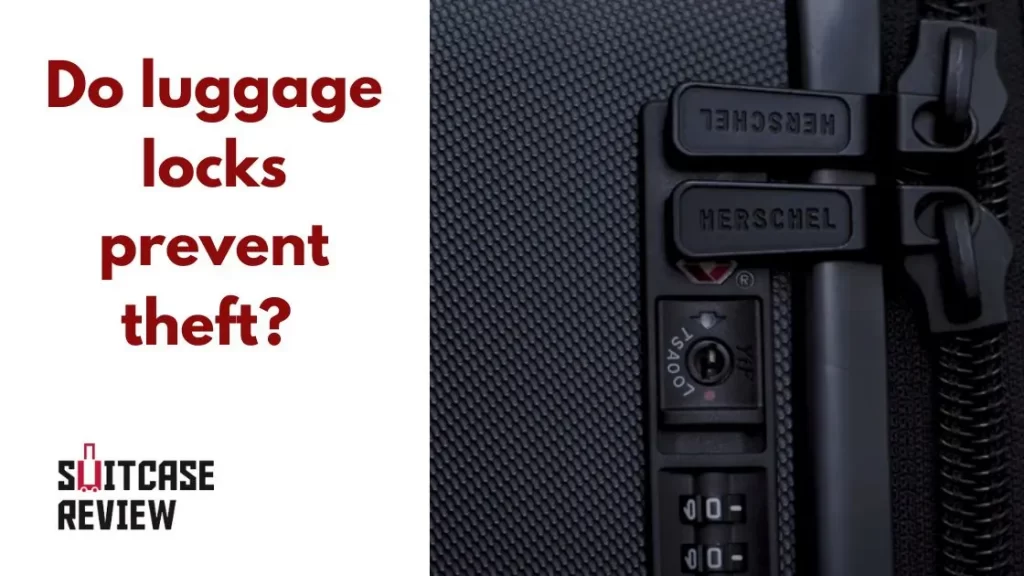
Luggage locks that are approved by TSA ensure safety from any other parties’ luggage opening, but TSA employees can open your lock with their master key.
And it makes your luggage items vulnerable to being stolen by TSA employees.
So the answer is no, luggage locks do not prevent theft by TSA agents.
Should I Lock My Suitcase When I Fly?
You definitely should lock your suitcase when you fly.
Whoever sends his suitcase to the luggage handler and TSA agents comes up with the question, should I have locked my luggage?
And this question and doubt are valid because each year, around 8000 claims are made against luggage handlers and TSA employees for losing items from bags.
So you defiantly should lock your luggage and, if possible, wrap the luggage too for enhanced safety.
Should I lock my luggage when flying internationally?
If you are flying internationally, you will probably use transportation and live in a foreign land, and for better safety of your luggage, you need to lock your luggage.
It will not just give safety in airport luggage terminals but even when you are taking any public transportation after landing in a foreign land.
Besides, if you share a room with other people, then locking your luggage will keep your mind at peace.
Out of all these locks, it is recommended to take TSA-approved locks because if TSA authority wants to inspect your luggage and find it hard to open the lock.
The TSA employees will cut off your luggage to check inside.
And it is better to use TSA-approved locks better than damage your luggage.
- Samsonite Evolve SE: The Ultimate Travel Companion - November 2, 2023
- US Traveler Luggage Review – The Boren Collection - September 10, 2023
- US Traveler Luggage Rio Carry-On – Affordable and Stylish Set for Budget Travelers - September 3, 2023

